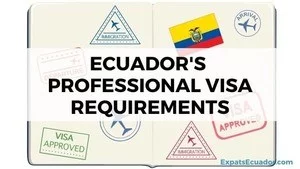We're getting to your messages. Thanks for your patience🙏
Editor’s note:
I interviewed Tim and Crystal at the very start of the COVID19 pandemic when we all had no idea how far-reaching and devastating the virus would become. As I publish this (late July 2020), all tourism business on the Galapagos has been severely affected and it’s still unclear when tourists will be able (and willing) to once again visit one of the world’s most unique ecosystems.
Tim is a veteran expat that has seen a lot of businesses come and go since arriving in Ecuador in 2001. His key message is simple but annoyingly difficult for many expat-run businesses to understand let alone implement; build your local community or you will not last.
Our interview is held at the Galakiwi office on San Cristobal Island, Galapagos. In the distance, I see (and hear) numerous sea lions and spot the rocks where I played with marine iguanas the previous day.
Sitting in that office, it’s easy to get swept up in the romanticism of starting a business in a foreign land. Especially one with such iconic beauty and history as the Galapagos. But, that’s the glossy magazine version of the story. Tim and Crystal’s tour company, Galakiwi Adventures, was not an overnight success. Underneath the surface lies 20 years of perseverance, error, and a good dose of chance.
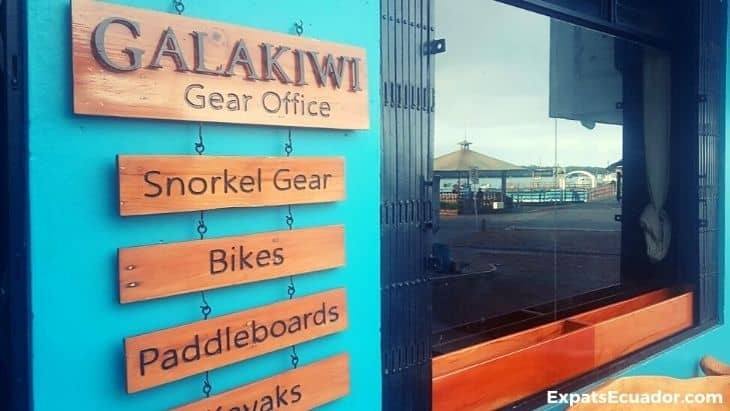
“Galakiwi operates land-based adventure tours in the Galapagos. Our focus is on small groups, privately guided. These groups are generally between 8-12 people, with a maximum of 16.”
Crystal - Director of Business and Operations, Galakiwi Adventures
Galakiwi has now narrowed its sights on Galapagos and Ecuador. They’ve learned from previous expansions into Peru and Colombia that whilst they could offer tours in these countries, they could not guarantee the level of service their clients have come to expect.
These form part of their 20 years of learnings - ultimately leading to their current offering that focuses on providing quality service in small groups. I’ve seen the level of preparation that goes into each tour and witnessed their tour guides in full flight. It’s an impressive operation. Especially so considering their relatively small team.
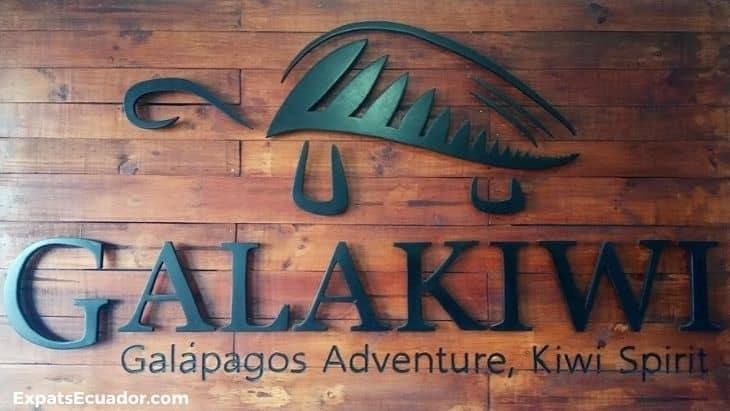
Galakiwi’s history is a fitting tale of adventure, opportunity, and trial and error (or natural selection - if you’ll indulge me just a little).
It started in 2001. Tim studied Spanish in Quito but felt he needed an immersive experience to practice and further hone his skills. This coincided with a volunteer opportunity to teach English in a community setting that just happened to be on a far-flung island off Ecuador’s mainland. That island was San Cristobal, Galapagos.
A love affair with the island ensued, as did marriage with a local resident. At the time there was very little tourist activity on San Cristobal, but the local extended family could see the value tourists could bring to the community. They were also aware that Tim could act as the conduit between the Galapagos and these tourists. So, a plan was born to build a boat and offer a tour that would allow tourists to island-hop between the various islands of the Galapagos.
This was really the first island hopping tour on the Galapagos. And whilst the current operation is quite different (ie there is no boat), the adventurous spirit lives on through the various activities now available through Galakiwi.
“Travel broadens your mind. It shifts your perspectives. We’re connecting people and that’s what our clients want as well. They want to interact. That’s the whole reason they are doing this type of tour.”
Tim - Founder & Director of Operations, Galakiwi Adventures
Crystal points out that Galakiwi’s core success metric is the quality of visit, measured via visitor satisfaction. It’s hard to overstate how critical this is to the ongoing success of not only Galakiwi, but the entire Galapagos lslands as a long term tourist destination.
A 5-minute bike ride from the Galakiwi office is the interpretation center, which includes some exhibits of the threat that mass-tourism has to the livelihood of the very people that rely on tourism to feed their families; the Galapaguenians.
Amongst the displays is a simple graph showing the cost/benefit of the Galapagos. The main message is that less, higher-paying tourists is what’s required for an ongoing, sustainable tourism sector. Tim and Crystal are too humble to say it, but their business model is in alignment with what the community actually needs. Quality, sustainable tourism focused on smaller group sizes and personalized experiences.
I would argue that this harmony between business and community is what has allowed Galakiwi to survive and prosper where many have failed.
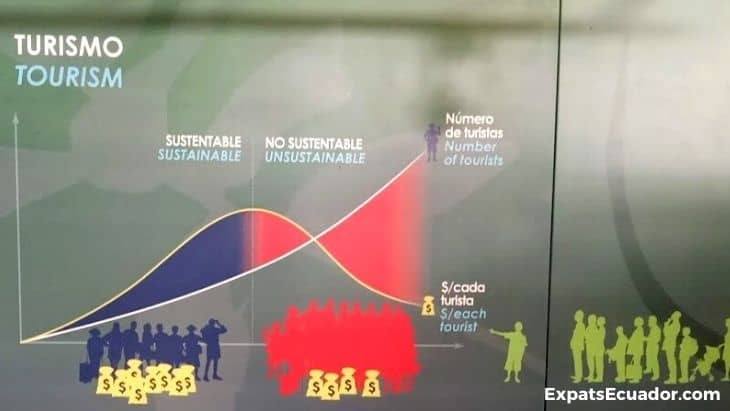
“The whole reason we're here is to create opportunities to connect cultures, empower communities and inspire positive action.”
Crystal
At the heart of Galakiwi’s offer is a quality service. Tim and Crystal have learned how to work with the local community to ensure every tour they offer lives up to their high quality standards. They joke about their early days when Tim would disappear for hours because he would need to physically check every hotel, restaurant and other itinerary items just before a tour would arrive.
That was seen as just a cost of doing business in the Galapagos when trying to bridge the gap between what was currently being offered and the high expectations of tourists.
The business has grown and Tim no longer does the checks himself, but the ethos towards quality is as alive as ever and it’s something that other tour operators really struggle to compete against. Having their base on the Galapagos provides a strategic business advantage. It allows them to foster a two-way relationship with local providers that is unmatched in the land-based tour industry; their providers actually care about delivering quality service because they care about Galakiwi and what it represents.
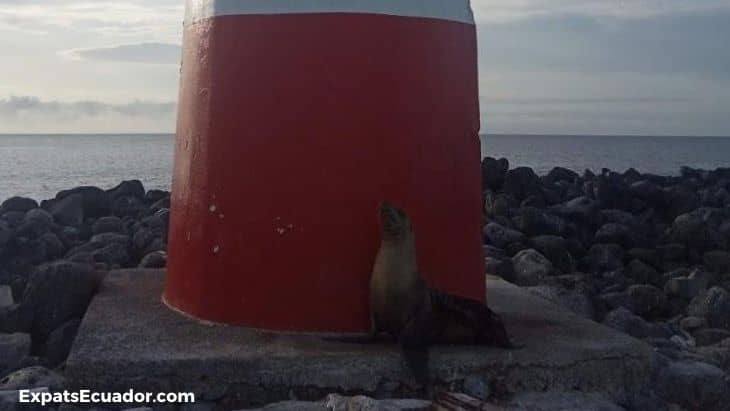
“If you want to protect the Galapagos, then you have to empower the people that are here.”
Crystal
Being part of the local community means getting involved and helping others. One of the ways Galakiwi serves its local community is by offering microloans. These loans have been made available to community members and employees on generous terms. And Tim is quick to point out that they’ve had very few problems with anyone defaulting on these loans.
We talk about other community initiatives and to me it’s clear that Galakiwi wants to provide a net return to their local community. Now, you’d be forgiven for thinking that Tim and Crystal are particularly enlightened individuals that have always recognized the importance of serving their local community. I don’t believe this was always the case. Indeed, Tim notes the challenge of fitting into the community as one of the biggest hurdles to doing business in such a small, remote place.
“I think that a big reason why we can run these types of tours is that we know we're living on a small island and we want to work with the people, rather than do our own thing and forget about everyone else. That was a big thing for me and I think anyone coming into a small town needs to make an effort to become a part of the community rather than not talking to anyone and walking down the street with their nose in the air.”
Tim
Tim’s seen many foreigners come into the Galapagos with the expectation that they have the golden ticket just because they’re able to set up a business on an island with such a strong tourism industry. This has not proven to be reality. Many businesses are forced to close because they’ve tried to do it alone and deliberately avoided community participation and growth.
“If you get on the wrong side of the locals, you're wasting your time here.”
Tim
To further illustrate how much their business relies on their ties to the community, we discuss a couple of topics that will be familiar to other expats operating a business in Ecuador; labor laws and accounting.
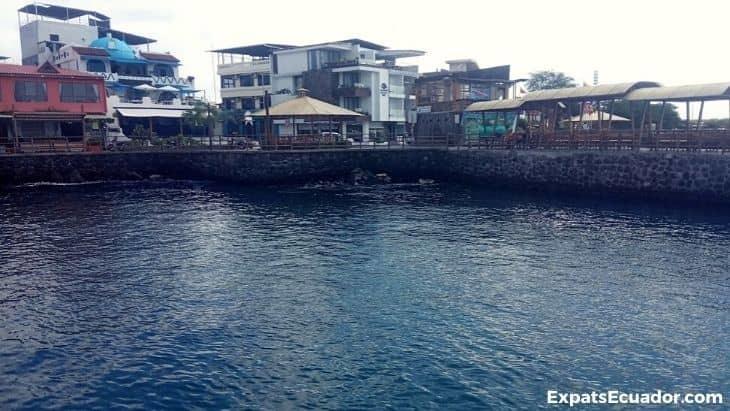
Visitors to the Galapagos get a feel for the double standards that exist between Ecuador and the Galapagos. The first taste is at the airports of Quito or Guayaquil where all tourists are made aware of the different check-in desks, fees, and processes for entering Galapagos. And once you get to the islands, you’ll likely come across some other fairly small reminders that Galapaguenian’s are treated differently.
What most tourists cannot see are the substantive differences beneath the surface such as labor laws that heavily encourage the employment of locals over Ecuadorians and the two-tiered pricing that local companies apply to Galapaganians vs Ecuadorians (& everyone else).
Tim and Crystal walked me through their experience trying to understand and abide by the local labor laws. To hire an Ecuadorian, they need to go through a contract process of putting an ad on the local radio for 3 or 4 days and then start vetting the applicants. If they don’t get an appropriate local applicant, then they can look to Ecuadorians. But, the onus is always on the business to prove why a local candidate is not suitable, and provide evidence that the Ecuadorian applicant meets this standard.
As an example, say they need a receptionist for their hotel that speaks a certain level of English and has a certificate in hotel management. This may prove very difficult to find locally, so they may wish to hire an Ecuadorian (or even a foreigner). But, they would need certified certificates for both English and hotel management to be provided by any non-local applicant. Anyone that’s had anything to do with Ecuador’s love of red-tape will know that this may prove to be a little more difficult and take more time than you’d like.
This is merely one of many labor law requirements that can easily trip up the uninitiated. But, how did Tim and Crystal learn of these requirements? Sure, they’ve read the labor laws themselves to try and get an understanding. But, this will only get you so far. You really need the support of trusted lawyers and accountants to make sure your business complies with labor, tax and other regulations.
And how do you learn about these trusted professionals? By tapping into your local community business network. Once again, a clear message that your business is only as strong as the community you’ve helped to build.
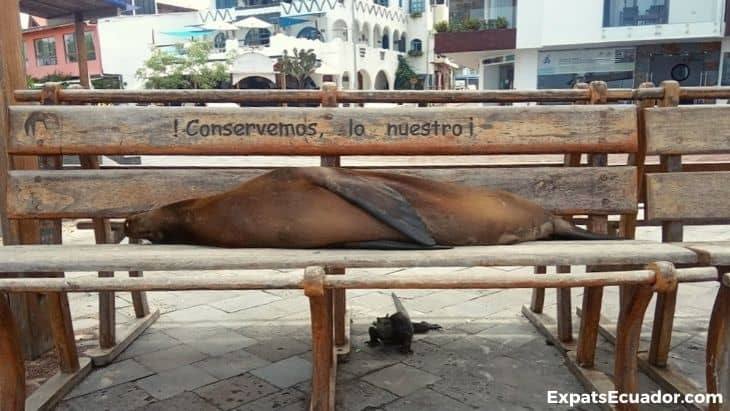
“Because we both have matured a lot, and because we're stubborn as hell, we've made it.”
Crystal
Tim and Crystal are not just business partners, they’re life partners too. This presents more challenges to running a successful business. They tell tales of being with each other 24/7 and needing to solve any personal issues quickly before their next tour arrived. Their business demanded everything from them and they found it very hard to separate themselves, their relationship, and even being parents from their business.
It’s only through their conscious evolution as a couple and as individuals that they’ve been able to thrive in such a closed environment. This personal development has, in turn, allowed the business to grow through organic and strategic efforts.
A major challenge for Tim and Crystal was to accept their differences. Meet them both for 30 seconds and you’ll quickly understand they have very different approaches to life. Tim is very hands-on and knows as much about operating land-based tours as anyone you’ll come across. Whereas Crystal prefers to take a step back and focus on the bigger picture.
This complementary relationship allows them to see into each others’ blind spots and the business is stronger because of it. Through their mutual efforts, they’ve been able to execute short and long term visions for themselves and their employees, community, and business.
Tim and Crystal’s message of building community support being pivotal in creating a sustainable business in Ecuador struck a chord with me. I’ve increasingly seen community building as both the biggest challenge and also the most valuable skill to hone if you’re going to thrive in Ecuador on a business or personal level.
As an expat, it’s easy to rely on the local expat community for support, encouragement, and some initial customers. However, if you are not able to garner the support of your local community through mutually beneficial opportunities, then your time as a business owner in Ecuador may be brief and costly.
And of course, if you are on the lookout for personalized, land-based adventure tours in the Galapagos, make an inquiry directly on the Galakiwi website.
